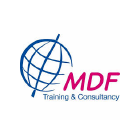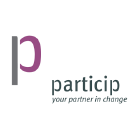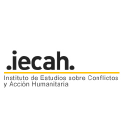WORKING WITH DG ECHO AS AN INTERNATIONAL ORGANISATION | 2014 - 2020
SANCTIONS
Article 214 of the Treaty on the Functioning of the European Union (TFEU) states that humanitarian aid operations shall be conducted in compliance with the principles of international law and with the principles of impartiality, neutrality and non-discrimination.
Article 215 of the TFEU provides for the possibility to interrupt or reduce economic and financial relations with third countries and to activate such possibility, the Council can adopt restrictive measures against natural or legal persons and groups or non-State entities.
EU sanctions are not meant to stand in the way nor impede the supply of humanitarian aid.
When humanitarian organisations implement actions in sanctions countries, they have to comply both with the obligations created by sanctions regime and with the humanitarian principles.
You can find below guidance issued or endorsed by the European Commission, or developed by humanitarian organisations, which can serve as a useful tool for humanitarian partners delivering aid in sanctioned jurisdictions.
EU SANCTION MAP
The EU sanctions map was created by the Estonian Presidency of the Council of the EU and was launched on 29 September 2017. It provided information on EU and United Nations sanctions but not on national EU Member State sanctions or other sanctions imposed by third states. It is regularly updated after amendments to existing sanctions regimes or imposition of new sanctions regime.
The aim of the EU sanctions map is to provide general up-to-date information on sanctions applicable in the EU jurisdiction.
It is available here: www.sanctionsmap.eu
Commission Guidance note on humanitarian aid to fight the COVID-19 pandemic and restrictive measures in Syria
This guidance for humanitarian and economic operators on the provision of humanitarian aid to fight the COVID-19 pandemic in certain environments subject to EU restrictive measures addresses questions linked to: exports of, and payments for protective gear, medicines, medical equipment, or the provision of medical assistance to the population in need in areas subject to EU sanctions. The note is addressed to all actors involved in the supply of humanitarian aid, such as the competent authorities of EU Member States, which manage the implementation of EU sanctions, and public and private operators (donors, NGOs, banks and other actors involved in humanitarian activities), which must comply with EU sanctions when providing assistance.
The guidance acknowledges that humanitarian aid must be provided without discrimination and that final beneficiaries do not need to be vetted against EU sanctions lists.
This guidance is meant as a tool to help DG ECHO partners in their delivering of COVID-19 related humanitarian aid in Iran, Syria and Venezuela and is available here: https://ec.europa.eu/info/files/201009-humanitarian-aid-guidance-note_en.
Risk Management Principles Guide for Sending Humanitarian Funds into Syria and Similar High-Risk Jurisdictions
This risk management principles guide for Syria was drafted based on exchanges between experts, governments, donors, banks and humanitarian operators on the impact of sanctions on the provision of humanitarian aid in Syria. These exchanges were organised by the Graduate Institute and supported and funded by the Swiss Government as well as supported by the European Commission.
This guide has been developed to offer background information and practical tips for how banks, humanitarian organisations and donors can work together to ensure aid can reach civilians in need of assistance within Syria, and in a manner which is compliant with EU/US/UN sanctions plus wider regulatory obligations. Although primarily developed in the context of Syria, the principles contained within the guide offer a transferable framework for working together in other high-risk jurisdictions where sanctions, conflict and terrorist financing concerns are prevalent.
OTHER USEFUL INITIATIVES WITHIN THE HUMANITARIAN SECTOR
Commission Guidance Note on the implementation of certain provisions of Council Regulation (EU) 2020/1998 (EU Global Human Rights Sanctions Regime)
The EU Global Human Rights Sanctions Regime was adopted on 7 December 2020. It includes a humanitarian derogation. The Guidance Note seeks to address the questions most likely to arise in the implementation of this new regime.
https://ec.europa.eu/info/files/201217-human-rights-guidance-note_en
- The Norwegian Refugee Council has developed a Toolkit for Principled Humanitarian Action: Managing Counterterrorism Risks funded by the Swiss Federal Department of Foreign Affairs
The Toolkit—available as an online platform—aims to increase understanding of practical aspects of risk management and to enable Humanitarian organisations to mainstream consideration of counterterrorism-related risks throughout the project management cycle.
A brief summary of the Toolkit, please take a look at the attached two pager, or see the full Toolkit at https://www.nrc.no/toolkit/principled-humanitarian-action-managing-counterterrorism-risks/
- VOICE workshop Report: impact of EU sanctions and restrictive measures on humanitarian action
The workshop organised in November 2019 by VOICE, network of 85 Humanitarian NGOs, brought together NGOs, external experts, European Member States and representatives from the EU institutions. It aimed to raise awareness and understanding of the importance of the topic for humanitarians and further start dialogue and build trust among the different stakeholders.
The report is available below
- A call for inputs has been launched by the Special Rapporteur on the promotion and protection of human rights and fundamental freedoms while countering terrorism, Ms. Fionnuala Ní Aoláin. (Deadline 01 July 2020).
The Special Rapporteur is an independent expert appointed by the United Nations Human Rights Council.
The mandate holder has been invited to gather, request, receive and exchange information on alleged violations of human rights and fundamental freedoms while countering terrorism, and to report regularly to the Human Rights Council and General Assembly about inter alia identified good policies and practices, as well as existing and emerging challenges and present recommendations on ways and means to overcome them.
The Special Rapporteur collected such inputs to study the interface between international human rights and international humanitarian law in counter-terrorism contexts. The outcome of the study will contribute to the report of the Special Rapporteur to be submitted to the 75th session of the General Assembly.
Please note that information received will be posted on the mandate’s website at the time of the report’s publication, except those containing a clear request not to be made public.






